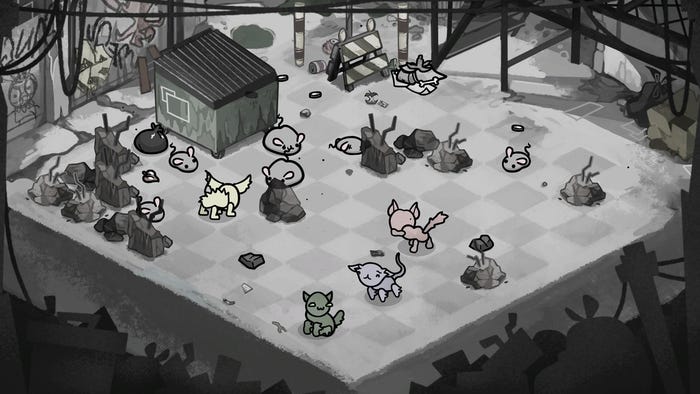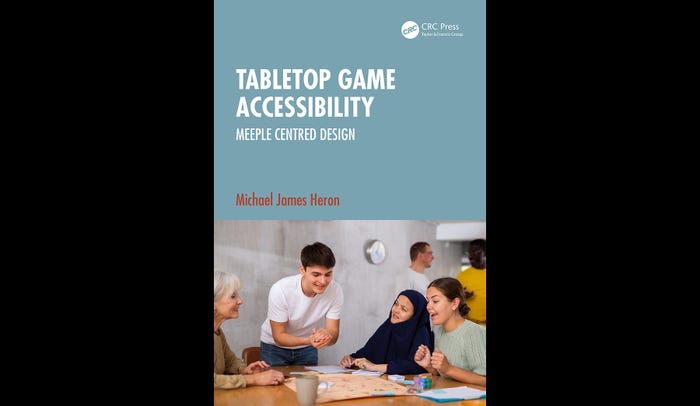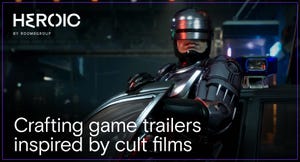This Week In Video Game Criticism: The Digital Elephant Never Forgets
Our weekly roundup of notable game criticism from around the web, in partnership with Critical Distance, examines posts on digital distribution, No More Heroes 2 and Proust.

[We're partnering with game criticism site Critical Distance to present some of the week's most inspiring writing about the art and design of video games from commentators worldwide. This week, Ben Abraham looks at posts on digital distribution, No More Heroes 2 and Proust.] In a newly published piece, Evan Stubbs finishes his three part series of musings on digital distribution for games, noting: "So far we’ve had a look at what the future holds for digital distribution and how data mining’s going to change the way we interact with our vendors of choice. But, that doesn’t answer the question: Where do we currently stand?" Daniel Bullard-Bates at Press Pause to Reflect discusses the open world genre in ‘If this is an open world why are all the doors closed?’ Its title reminded me of an older post by Alec Meer at Rock Paper Shotgun, his ode to a “Locked Door”. At a brand new video game blog called Post-Hype, Chris Breault asserts that the oft applied metaphor for comparisons with Uncharted 2 -- that it’s like a film -- is inaccurate. In fact, he says, ‘Don’t call Uncharted 2 a film’ at all, saying somewhat stuffily: "Its achievements are purely technical, but they are never "film quality."" Elsewhere, David Carlton has been thinking about children’s and adolescent literature and comparing/contrasting the features of that genre with video games aimed at children and teens. Like his previous application of the fiction/non-fiction literary categories to videogames, The Beatles: Rock Band in particular, I found Carlton’s line of reasoning both illuminating and persuasive. At The Border House this week, Rho writes about some of the issues you may have never had to worry about when using voice chat in online games, and Alex Horn discusses ‘Racism and Left 4 Dead 2’, suggesting that it might ignore important post-Katrina issues. In ‘Proust was… a game designer?’ Mitu Khandaker explains some of her PhD research work on games in the context of a discussion of John Lehrer’s book “Proust was a neuroscientist”, addressing relationships between the arts (humanities) and sciences. Michael Abbott talked about No More Heroes 2 this week, and resolved that sometimes better is worse. I have a mixed response to this one, because he references a post from a few months ago (which he links to in this newest discussion) where he talked up the virtue of iterative design in the context of the Nintendo DS game Mario & Luigi: Bowsers’ Inside Story, and states that at the time he was wrong. I think that’s an easy oversimplification and I can’t help but wonder what the real story is, even if Abbott himself can’t explicate it. It seems to me that whenever there’s (apparent) contradiction there’s almost always something interesting going on. On the same subject, Leigh Alexander wonders "if we've come to associate creativity with visible flaws?" and if so, that would go some ways to explaining Abbott's response. Kirk Hamilton wrote in to let readers know about the new blog he’s started recently with some fellow collaborators. It’s called ‘Gamer Melodico’, and his post parodying both Mass Effect 2 and hipster memes gained him some serious popularity. I hope some of the newcomers decide to stick around. In other news, Deirdre Kiai talked this week about a hunch she has that the target audiences for her Kickstarter-funded indie game project Life Flashes By and the new Apple device the iPad overlap somewhat. She says, “In fact, the intended audience for my game is a lot like the intended audience for the iPad in many ways. I’m not really making a game for gamers.” Over at Game In Mind, Matthew Kaplan relates ‘How video games helped me talk to my father.’ Matthew Burns-nee-Wasteland writes about his time in the dungeon of game testing over at Edge Online, in which various favorable and not-so-favorable metaphors abound. As he explains simply: "Generally one spends a lot of time in front of a screen and a single game, eight or more hours a day, day after day." In another blog published last week, Alex Raymond explains what it takes for a game to feel “epic” for her, saying “in order to invoke that sought-after “epic” feeling, a game has to work to show me its scope.” Jorge and Scott from Experience Points talk about the Halo games in 'Halo Podcast Evolved' and Scott, who has been writing about The Beatles: Rock Band for a while now, talks about the game again in ‘Yesterday’. It’s not too far removed from some of the issues raised in David Carlton’s abovementioned post, discussing the historical aspects of the game. And lastly, at HardCasual, someone named Greg realises his life has tragically been one long side quest all along. Oh dear.
Read more about:
2010About the Author(s)
You May Also Like









.png?width=300&auto=webp&quality=80&disable=upscale)



